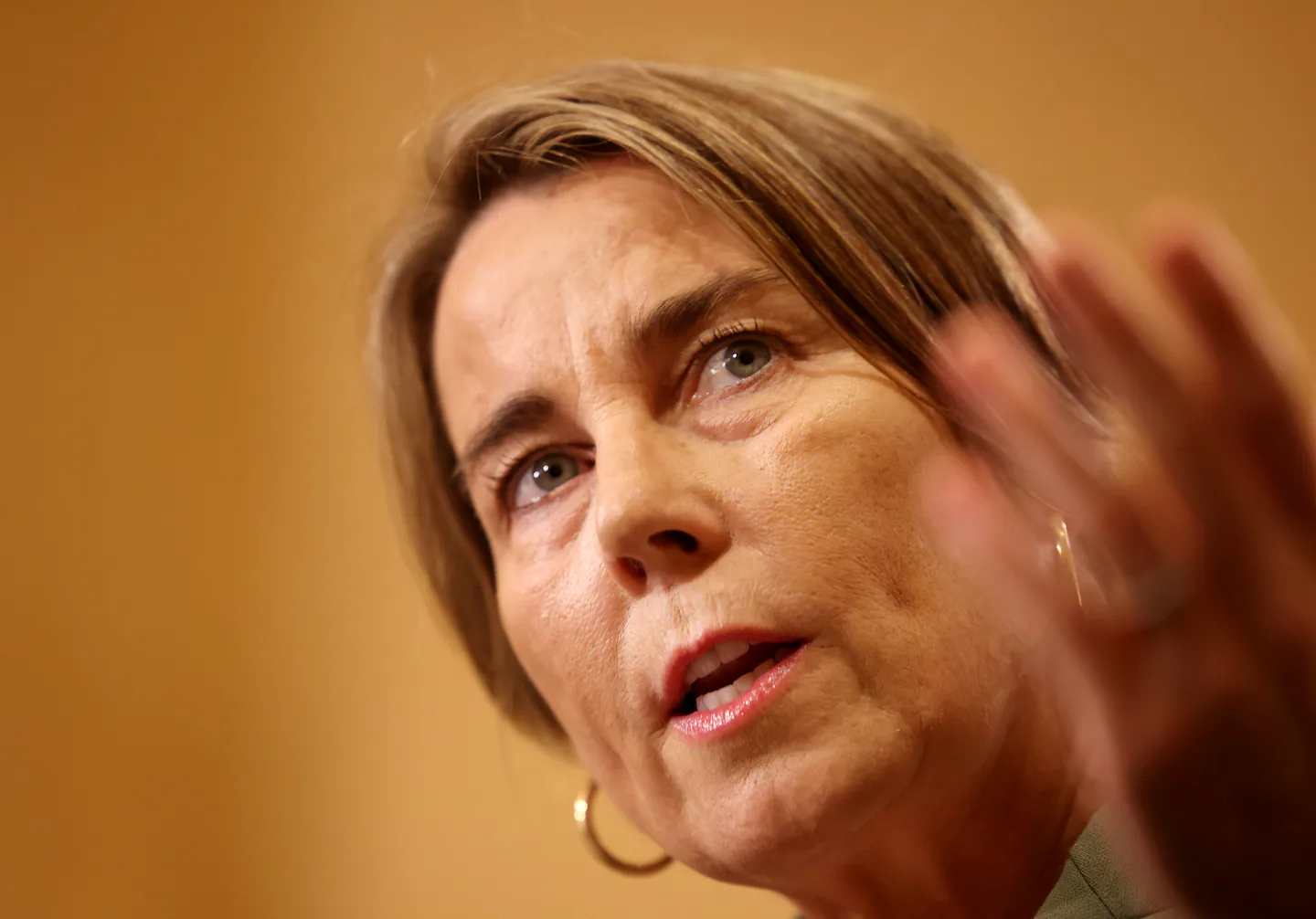
As it turned out, it wasn’t.
To much surprise, it was Applegreen and its private equity owner, Blackstone, that decided to pull out on Tuesday. Global had publicly pilloried MassDOT in radio and digital ads, billboards, rallies, press releases, and court filings, accusing the state agency of stacking the decks for Applegreen and its well-connected local contractor, Suffolk Construction. Meanwhile, behind closed doors, MassDOT became increasingly at odds with its chosen redevelopment partners over how to finalize the 35-year lease. Issues such as environmental liabilities, restaurant hours, and staff wages all still needed to be hashed out.
By day’s end on Tuesday, Applegreen abruptly announced it would walk away. In a brief statement, the Irish company blamed the remaining issues in the lease negotiations as well as Global’s pending litigation. Just how much of a role Blackstone played in the decision is unclear.
Healey and her transportation secretary, Monica Tibbits-Nutt, now face two options, neither of them ideal: Take Global up on its offer by accepting its losing bid, or jettison the entire RFP and start again.
We’ve lasted this long with lackluster service plazas. We can wait a little longer, right?
Here’s the problem with restarting. Most of the leases on the current plazas run out at the end of the year. That’s just three months away. MassDOT was already cutting it close. To start over, MassDOT would need to negotiate extensions with McDonald’s (for food) and RaceTrac-owned Gulf (for fuel) for these plazas, for at least a year, to accommodate an entirely new round of bidding. One MassDOT lawyer said in June that the agency loses considerable leverage in talks with the incumbent tenants if it can’t wrap things up before the current leases expire.
Global is already a key player at these properties, too, as a provider of fuel services on Gulf’s behalf and operator of convenience stores for McDonald’s at the turnpike service plazas. Global also controls four plaza leases of its own— the two on Route 24 in Bridgewater, as well as ones in Barnstable and Beverly — though those don’t run out until mid-2027.
Healey is up for reelection next year. Her political opponents are already starting to use the service plaza mess against her. Does she really want the lingering agita?
Then there’s the other option: Team up with the company that’s been beating you up for the past four months.
The swings never stopped, first in the media and at the State House, and finally in the courthouse. Global generally avoided taking potshots at Healey directly, and instead went after MassDOT, Applegreen, and Suffolk. Global even persuaded state Senator Mark Montigny to investigate the issue, a sign its argument was gaining traction. (Applegreen bailed on the job the day before a public hearing that Montigny had scheduled was supposed to take place; neither MassDOT nor Applegreen were willing to testify, and the hearing was postponed.)
Tibbits-Nutt seemed to leave the door open for Global in her own brief statement about Applegreen’s departure: “Our focus is on moving forward to deliver the highest quality service plazas as quickly as possible for the people of Massachusetts.”
Making nice with Global would seem to be the only way to redo the service plazas “as quickly as possible.” Reconciliation certainly is possible, but might not be pleasant.
Global chief executive Eric Slifka issued a statement that essentially said to MassDOT: Give us a call, we’re ready to step in.
In picking Applegreen’s bid, MassDOT cited the promise of a larger capital investment ($750 million), including more full rebuilds, and a faster timeline to finish the work. Global, meanwhile, pledged to deliver more money over the long haul: An independent audit showed Global’s proposal bringing in $1.3 billion to $1.5 billion in revenue for the state over 35 years, compared to $623 million to $994 million for Applegreen. However, finances represented just 25 percent of the scoring (and Applegreen strangely beat out Global in that category).
Now, it looks like the Applegreen bid was simply too good to be true.
For political insiders, the fierce fight over the future of the service plazas has become a source of gossip, if not entertainment, this summer. The Beacon Hill crowd has never seen something quite like this. Global briefly hired the state’s third-busiest lobbying firm, O’Neill and Partners, while Applegreen had already lined up the busiest, Smith, Costello & Crawford. (O’Neill and Global ended up parting ways in August.) Global packed a MassDOT board meeting in June with its own employees. And Global prompted hundreds of them to line up on the State House steps a month later, holding signs complaining of “corruption” and “backroom deals.”
From the moment in June when MassDOT went with Applegreen and Suffolk, reversing that decision seemed like a long-shot for Global, and for a piece of business that would be a tiny fraction of its nearly $20 billion in annual revenue.
But Global may end up winning the service-plaza lease after all — just not the way it had intended.



